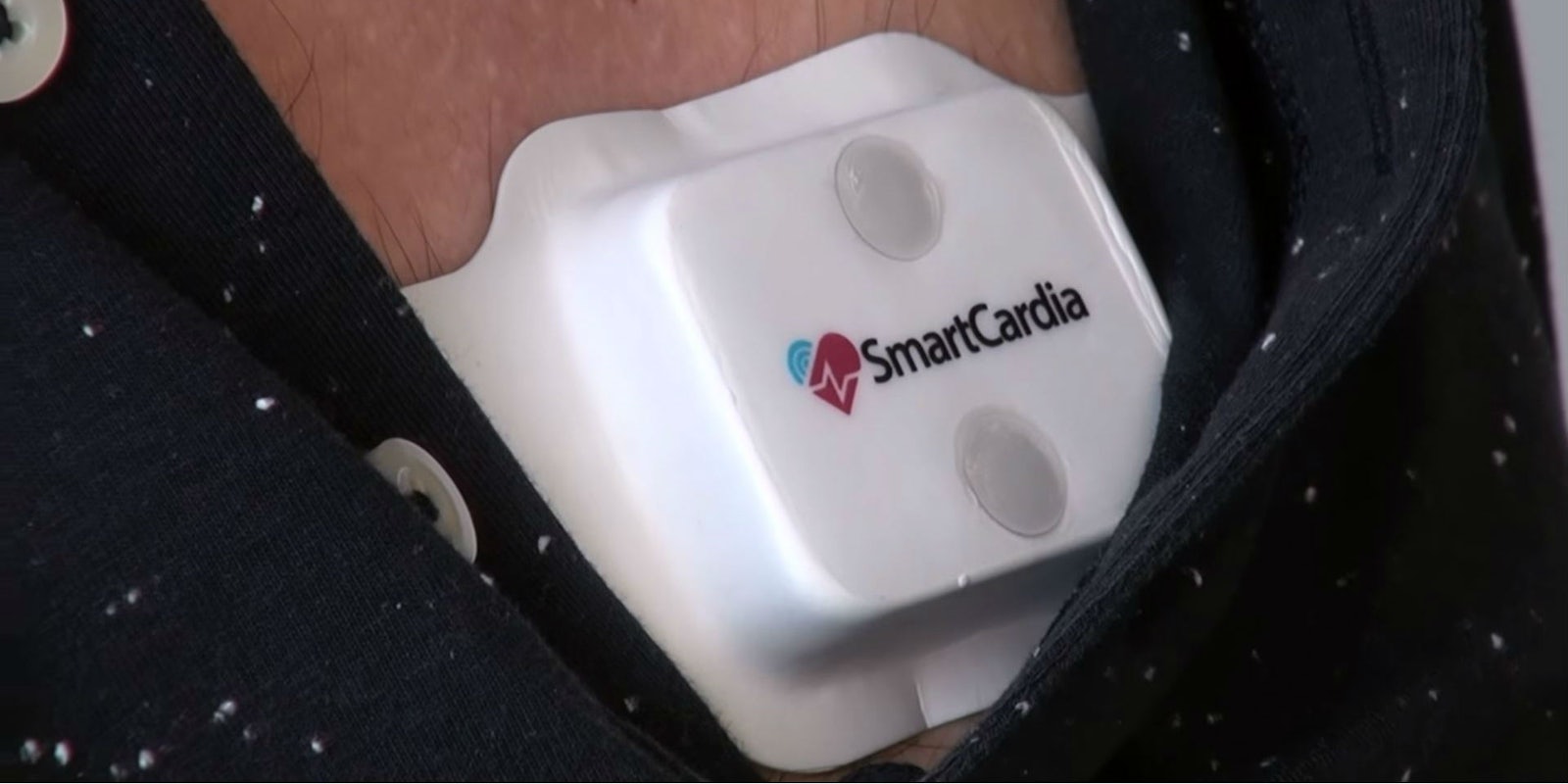A tiny, wireless patch developed by health tech startup Smartcardia can supposedly determine whether you’re going to have heart complications before they happen.
The health wearable has been tested extensively in real-world hospital settings and reportedly proven to be as accurate and reliable as traditional, more cumbersome methods. Applied to the chest of a patient, the patch is capable of tracking vital signs, including temperature, pulse, blood pressure, blood oxygen levels, cardiac rhythm and cardiac electrical activity. Combining these measurements with artificial intelligence, it can recognize anomalies and predict the deterioration of a patient’s health.
There are two main innovations that make this tech possible, according to a post by the École polytechnique fédérale de Lausanne (EPFL). The first is miniaturization, or taking everything you’d find in a traditional machine and shrinking it to the size of a Band-Aid. The second is advances in artificial intelligence that develop models to monitor a patient and make predictions in real-time. For example, if the patch records a small increase in blood pressure along with a decrease in blood oxygen level or respiratory rate, it might alert the patient to a potential heart problem.
“This kind of system could be used for patients with chronic cardiac or pulmonary diseases, or people with sleep disorders,” said Francisco Rincón, CTO of Smartcardia, a spin-off of the EPFL. “That could help prevent complications and reassure patients living under the sword of Damocles. “
But why replace existing proven equipment? Mostly for convenience. Equipment currently being used in emergency rooms is bulky and requires a wired connection, making it difficult for patients to move around. The patch, on the other hand, is about three square inches and can be worn during normal day-to-day activity. The small unit is designed for emergency rooms and hospitals, but it can also be used at home to provide patients an early warning of heart complications and sleep disorders.
That’s where it’s headed next. Smartcardia has already tested the patch in 20 clinical trials with more than 1,000 patients. It is currently conducting large-scale trails with more than 2,000 patients. Once that’s complete, the startup will deploy the system in homes.


